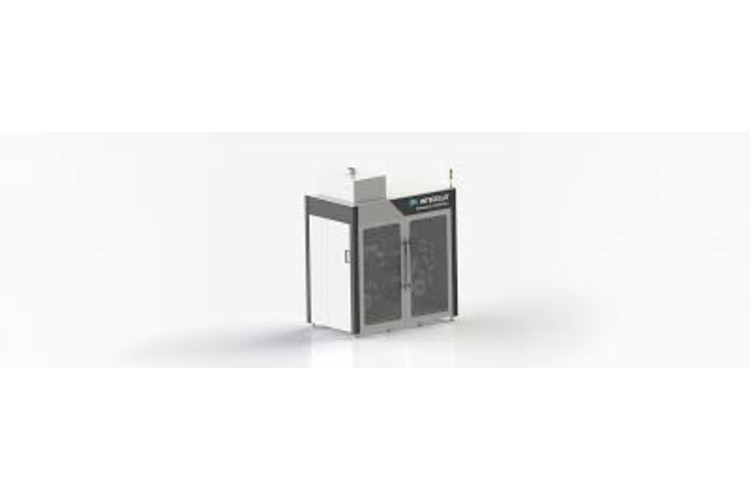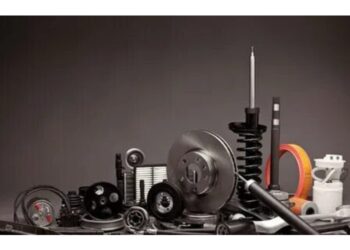The global transition to electrification is placing an unprecedented demand on the development, production, deployment, and disposal of high-performance batteries. These critical components are essential for electric vehicles (EVs), renewable energy storage systems, and diverse industrial applications. In response to this escalating need, Comau, a global leader with wild of expertise in advanced automation solutions across the entire battery value chain, has announced a strategic collaboration with Intecells, a Michigan-based start-up active in battery manufacturing innovative processes. This partnership represents a pivotal step in Comau’s expansion into electrode preparation, aiming to revolutionize battery electrode production through Intecells’ patented cold plasma technology. This initiative underscores Comau’s profound commitment to addressing the complex requirements of this transition, leveraging its deep understanding of the battery value chain’s inherent complexities and challenges.
Revolutionizing electrode production with Cold Plasma
At the heart of this groundbreaking collaboration is Intecells’ cutting-edge cold plasma technology. This innovative approach is designed to streamline the manufacturing process by eliminating the need for traditional solvents and binders, which are typically used in battery electrode production. This not only significantly enhances process efficiency but also improves the performance and safety of the battery cells themselves. Technology promises substantial benefits, including reduced cycle time and energy consumption, while simultaneously improving cell capacity, cyclability, and overall production quality across diverse battery types. These advancements align perfectly with Comau’s core focus on delivering scalable, precise, and sustainable solutions, crucial for meeting the stringent quality and environmental requirements of modern lithium-ion battery production.
Gian Carlo Tronzano, Comau’s Head of Battery Cell Global Competence Center, emphasized the strategic importance of this alliance, stating, “Our collaboration with Intecells marks a pivotal step in redefining how battery cells are manufactured. By combining Intecells’ disruptive technology with Comau’s electrification technology and expertise, we are working to deliver a practical path for integrating next-generation plasma processes into existing production lines, starting with the validation of cold plasma technology within scalable manufacturing operations ” Xiaohong Gayden, Intecells’ founder and CEO, further highlighted that its partnership with Comau provides the necessary means to accelerate development, transform battery cell manufacturing, and support its customers on a global scale.
Comau’s comprehensive approach to the battery value chain
Comau’s expertise spans the entire battery lifecycle. Addressing through Its comprehensive portfolio all the main battery cell manufacturing stages from electrode preparation to cellformation, up to modules/packs assembly end-of-life recycling at different production scale
Cell formation and testing: the cell manufacturing process culminates in Cell Formation, a critical electrochemical treatment where newly assembled cells undergo controlled charging and discharging cycles to stabilize internal chemical reactions and activate optimal performance. Comau supports all stages of this process, from lab-based prototypes to Giga-scale production, offering fully automated solutions designed for high throughput and stringent quality. Key features include flexibility for various cell types (prismatic, pouch, cylindrical), modular and scalable architecture, advanced thermal management for precise control, and integrated testing systems. Comau’s digital twin technology, powered by real-time data acquisition and AI-optimized manufacturing parameters, accurately predicts cell quality and machine behavior, enabling proactive issue identification and process optimization.
Module and pack assembly: with over a decade of experience in battery modules and packs, Comau offers a 360° portfolio for prototyping, pre-production, and mass manufacturing. Its solutions leverage robotics and flexible automation for high-speed, high-accuracy systems that integrate critical processes like cell sorting, laser welding, and structural assembly. These systems are adaptable to different module architectures and can accommodate both high-mix, low-volume and high-volume production. For battery pack assembly, Comau’s innovative laser-based welding solutions optimize joint precision and efficiency across diverse materials, ensuring optimal performance and durability for e-Mobility applications.
Battery Disassembly and Recycling: recognizing the growing challenge of end-of-life batteries, Comau is actively involved in developing automated recycling solutions. Participating in projects like the European Flexible Battery Dismantling and REINFORCE, Comau addresses the complexity of spent batteries through automated disassembly and material sorting systems. Its Flex-BD robotic system optimizes dismantling for valuable material recovery (lithium, cobalt, nickel), aligning with global sustainability goals and promoting a circular economy.
Pioneering new technologies and ecosystem engagement
Comau’s commitment to advancing electric mobility extends beyond individual collaborations, encompassing a deep involvement in international consortia and cutting-edge technological development. The company is a proud member of the European Battery Alliance (EBA), the Batteries European Partnership Association (BEPA), and the European Technology & Innovation Platform (ETIP) for batteries. Furthermore, Comau actively participates in initiatives like Upcell, reinforcing its dedication to enhancing the global competitiveness and autonomy of the European battery supply chain, including the design and production of cells, modules, and packs.
Looking ahead, Comau is actively shaping the future of battery manufacturing. The company is advancing “cell-to-pack” assembly processes, which integrate battery cells directly into packs without the intermediate step of creating modules. This approach reduces both the weight and size of the final battery, improving energy density and overall system efficiency. Moreover, Comau is exploring new battery technologies such as solid-state and sodium-ion cells, which promise to enhance energy storage capabilities, demonstrating its forward-thinking approach to sustainable mobility. Its Design for Excellence (DFX) approach ensures that critical aspects are considered during initial design, leading to optimized products and cost-efficiency.
Navigating market dynamics and future outlook
The battery market is characterized by rapid evolution and significant challenges. Global investment slowdowns, political resistance for Chinese investors, and risks in European battery production are pressing concerns. However, technological trends like decreasing battery costs, the push for production localization (reducing reliance on global supply chains), and continuous technological developments (e.g., prismatic cell formats, solid-state batteries) are acting as strong market drivers. The growing emphasis on sustainability, including recycling initiatives and reducing carbon footprints, further shapes the industry.
Comau is strategically positioned to navigate these dynamics. By expanding into cell assembly and electrode preparation, Comau intends to position itself as a full-process solution provider, offering end-to-end manufacturing systems capable of powering the next wave of battery gigafactories. Its commitment to automation, precision engineering, and scalable production makes it a key enabler of the solid-state battery revolution and a trusted partner in delivering next-generation battery manufacturing solutions.
This collaboration with Intecells, therefore, is not just about a single technological advancement; it is a testament to Comau’s holistic strategy and its relentless focus on innovation, operational excellence, and customer success. It delivers a practical path for integrating next-generation plasma processes into existing production lines, contributing significantly to a more efficient and environmentally friendly future for battery manufacturing, and supporting the global shift towards sustainable mobility and advanced energy storage solutions.












